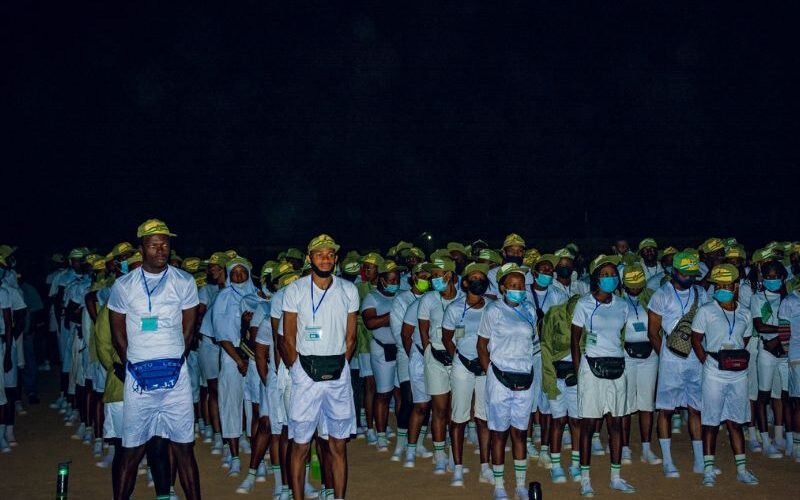If you’re a fresh graduate gearing up for your NYSC service or already out there serving in a rural school or government office, you’ve likely caught wind of Nigeria’s new minimum wage. The burning question: Will this change boost your NYSC allowance? The answer is a resounding yes. In July 2024, President Bola Tinubu signed the National Minimum Wage Act, raising the baseline pay to ₦70,000 monthly.
This didn’t just shake up civil service salaries—it pushed the NYSC allowance from ₦33,000 to a more substantial ₦77,000, effective from July 2024. But there’s a catch: payments didn’t start flowing until March 2025, leaving corps members waiting for the extra cash. In this article, we’ll dive into how this change came about, what it means for your wallet, and why it’s a game-changer for corps members navigating Nigeria’s tough economy.
Understanding the New Minimum Wage
First, let’s break down the basics. Nigeria’s minimum wage is the legal minimum employers must pay workers, designed to keep up with rising costs of living like food, transport, and housing. Before 2024, the wage was ₦30,000, set back in 2019 after labor unions pushed hard against inflation. By mid-2024, after months of negotiations between the government, unions, and private employers, the new wage landed at ₦70,000. Signed into law in July, it applies to all employers with 25 or more staff, public and private.
This hike was a response to Nigeria’s economic challenges—think fuel subsidy removal, naira devaluation, and inflation rates hitting close to 30%. For low-income workers, it’s a lifeline. For NYSC corps members, it’s more than just a policy tweak—it directly impacts the monthly “allawee” that keeps you going during your service year.
How NYSC Allowances Tie to the Minimum Wage
The NYSC allowance has always had a close relationship with the national minimum wage, even if it’s not a perfect mirror. Historically, when the minimum wage rises, the allowance gets a boost too, reflecting the government’s effort to make national service financially bearable.
- Pre-2019: When the minimum wage was ₦18,000, corps members earned ₦19,800 monthly—enough for basic needs like transport to your Place of Primary Assignment (PPA).
- 2019-2020: After the wage jumped to ₦30,000, the allowance rose to ₦33,000, following some serious lobbying by corps members who felt the pinch of inflation.
- 2024 Update: With the new ₦70,000 wage, the allowance now sits at ₦77,000. Why the extra ₦7,000? It’s likely a nod to the unique costs of NYSC life—relocating to new states, remote postings, and no extra perks like full-time employees get.
This trend shows the government sees corps members as part of the broader workforce, deserving a stipend that reflects economic realities. Without this link, the allowance could stagnate, making service feel more like a sacrifice than an opportunity.
The Rollout: When and How the Change Happened
On September 25, 2024, NYSC’s leadership dropped the big news: The allowance would jump to ₦77,000, backdated to July 2024 to sync with the new wage law. The announcement was met with excitement, with officials calling it a boost for youth empowerment. But the rollout hit some snags. Corps members kept getting the old ₦33,000 through late 2024 and into early 2025, sparking frustration and social media rants.
Why the delay? Budget approvals and treasury logistics. The government needed to allocate funds for the increase, and that took time. By January 2025, NYSC assured everyone the new rate was coming, and in March 2025, payments finally started hitting accounts—complete with arrears for the backdated months. For corps members in the 2024/2025 batches, this meant scraping by on the old rate for a while, then getting a lump sum of arrears, which was a welcome relief.
What the ₦77,000 Allowance Means for Corps Members
So, what does an extra ₦44,000 a month do for you as a corps member? Let’s be real—Nigeria’s economy isn’t kind. Food prices have soared (a bag of rice can cost ₦80,000 in some markets), transport fares have doubled since fuel subsidies ended, and rent in urban postings like Lagos or Abuja can eat up your entire old allowance. The new ₦77,000 isn’t a ticket to luxury, but it’s a serious upgrade.
- Better Living Standards: You can now afford decent meals, cover transport to your PPA without borrowing, and maybe even save a bit for post-NYSC life.
- Arrears Windfall: If you served between July 2024 and March 2025, those back payments (₦44,000 extra per month) could total over ₦300,000, enough to clear debts or fund a small business idea.
- Motivation Boost: A fatter allowance makes the grind of service—whether teaching in a rural school or filing paperwork in a government office—feel more rewarding.
That said, some corps members argue it’s still not enough. Inflation continues to bite, and those posted to high-cost cities might still struggle. Plus, not every PPA pays extra stipends, so the federal allowance is all many rely on.
Challenges and Criticisms
The hike isn’t without its issues. For one, the delay in payments frustrated corps members who budgeted based on the promised ₦77,000. Social media was ablaze with complaints, with some calling the government out for raising hopes without immediate action. Others worry about sustainability—can the government keep up these payments if economic pressures worsen? States like Bayelsa and Anambra, which sometimes offer extra allowances, haven’t clarified if they’ll adjust their own contributions, leaving some corps members in limbo.
There’s also the question of fairness. Corps members aren’t full-time workers, yet their allowance now outstrips what some low-level civil servants earn in certain states. This has sparked debates about whether the NYSC should be treated as a job or a national duty with symbolic pay.
Looking Ahead: What’s Next for NYSC Allowances?
The ₦77,000 allowance is a big win, but it’s not set in stone. The minimum wage law is reviewed every five years, so by 2029, we could see another adjustment. If inflation keeps climbing, corps members might push for even higher stipends. There’s also chatter about reforming NYSC entirely—some advocate for optional service or regional allowances based on cost-of-living differences. For now, the focus is on ensuring timely payments and addressing disparities in state-level support.
Conclusion
The new ₦70,000 minimum wage has undeniably transformed the NYSC experience, boosting the monthly allowance to ₦77,000 and offering corps members a better shot at financial stability during their service year. While delays in implementation caused some headaches, the eventual rollout—complete with arrears—has been a lifeline for many. This change isn’t just about more money; it’s about recognizing the sacrifices young Nigerians make to serve their country. Whether you’re a current corps member or about to don that khaki, this hike means you can focus a bit more on making a difference and a bit less on scraping by. As Nigeria’s economy evolves, so will the conversation around NYSC allowances—stay tuned for what’s next.







